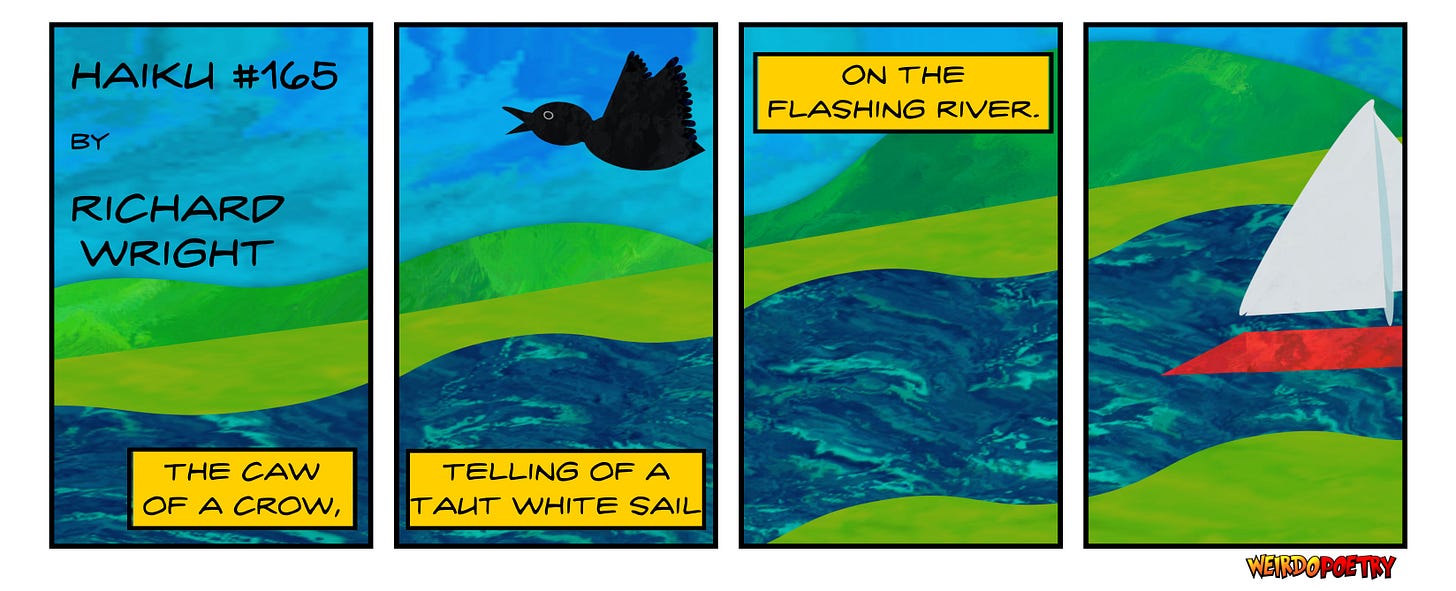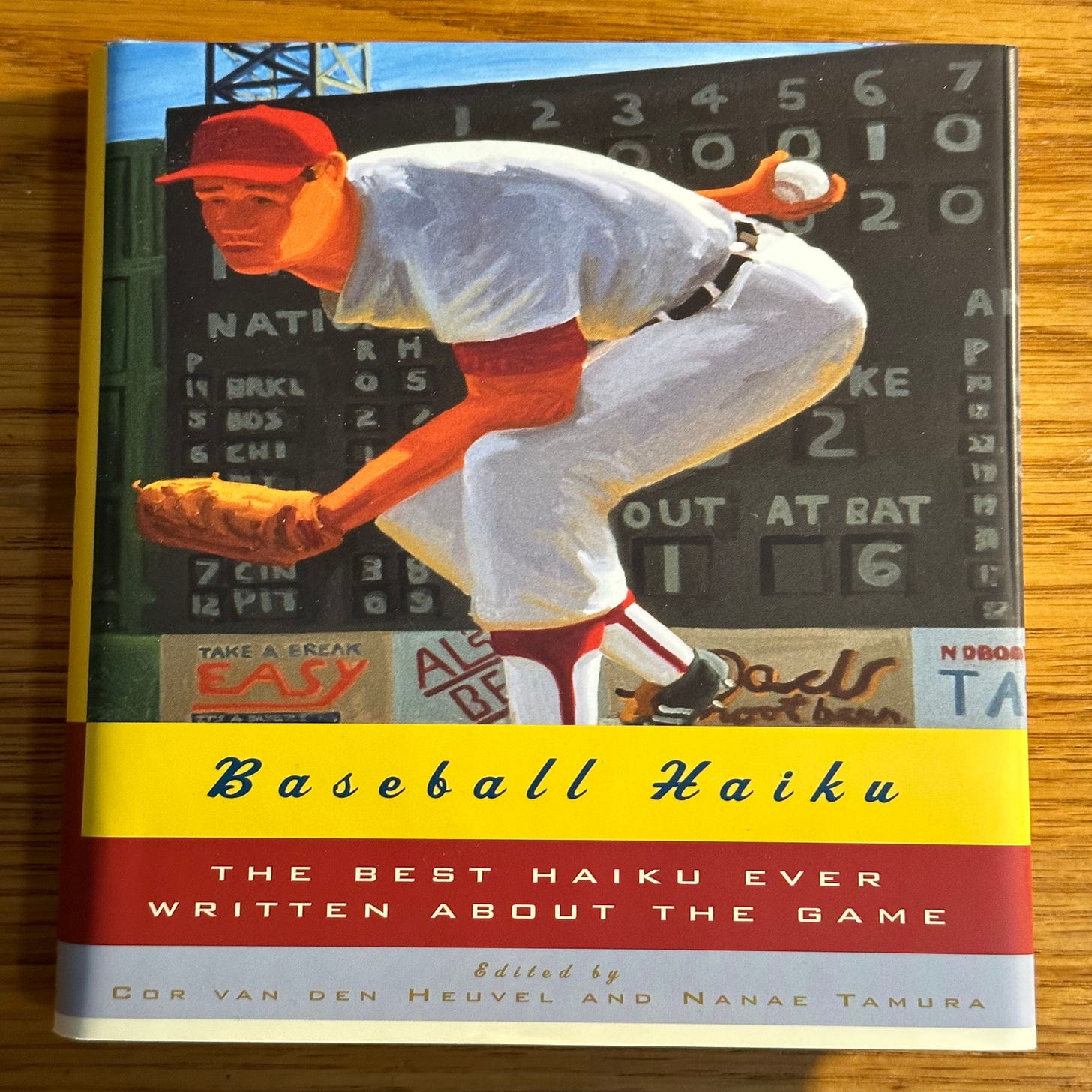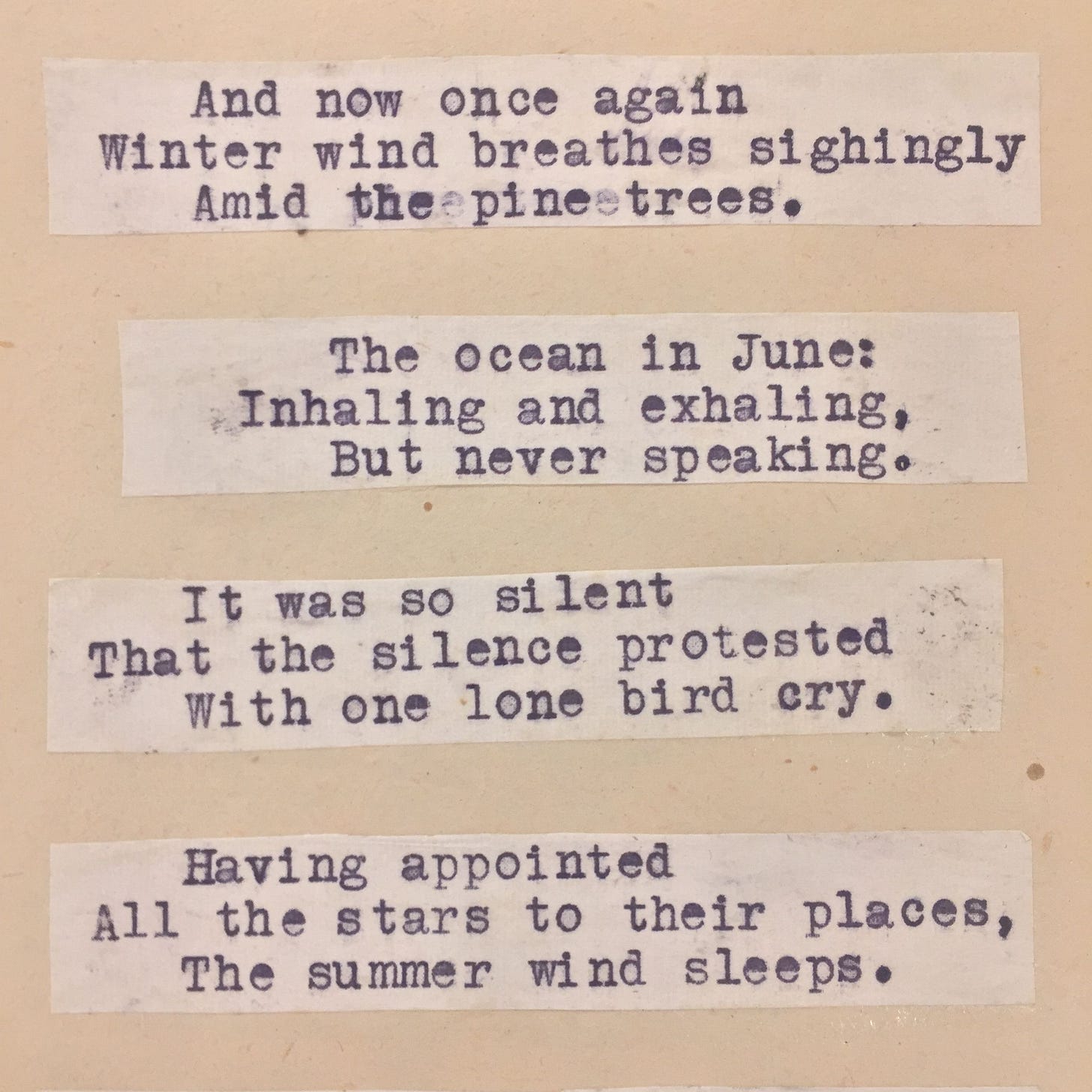Richard Wright, Haiku Dad
Thinking about my dad, my children, and their haiku dad
Normally, the Asynchronous Poetry Book Club posts are locked behind a paywall. However, today’s special flashback post is free to everyone to give you a sneak peek at the kinds of things happening here! If you enjoy this post, please consider becoming a paid subscriber. You not only get access to all of the Asynchronous Poetry Book Club posts and other exclusive content, but you also get the good karma that comes with supporting an independent artist.
Hello, Poetry Friends!
Back in January, we talked about the haiku poetry of the legendary writer Richard Wright. Since today is Father’s Day here in the U.S., I wanted to revisit Wright’s haiku through the eyes of his daughter, Julia Wright.
I also wanted to announce the full-time return of the Asynchronous Poetry Book Club after a two-month hiatus. In July, we will be reading Baseball Haiku. This anthology is the perfect way to explore just how flexible haiku can be when describing our world.
Currently, I can only find this book for purchase on Amazon. It is also often found in library collections.
Janice Harayda has a great review of this book; you should check it out if you’re on the fence about getting a copy before next month.
Haiku Dad
My father was not a poet, and my love of poetry was just one of a thousand barbed branches that blocked the space between us.
Most of the written communications he sent my way were either spare and emotionless or dripping with passive-aggressive angst.
Jay McBride wasn’t an internationally admired writer, but he was one of the best integrated-circuit layout design engineers of his generation. An integrated-circuit layout design engineer is a kind of architect of microchips. Where an architect would work to maximize airflow and natural light with window placements, Jay and his colleagues would move resistors and capacitors around on their drafting tables (and later computer screens) to optimize for speed and memory while minimizing energy consumption.
He was a narrow kind of genius, and for me, that’s part of what made him a difficult father.
Richard Wright was a broad genius, and I get the sense from both Julia Wright’s poignant introduction to her father’s posthumously published Haiku: The Last Poems of an American Icon, and other biographic details, that Richard Wright was also a kind of difficult father.
Unlike Jay, I am a poet and writer—while not internationally acclaimed, at least known by a handful of people on several continents. Like Jay McBride and Richard Wright, I am a father—whether I’m a difficult father or not is something I will leave to my children to decide.
Even though separated by skill, race, and generations, I feel a kind of kinship with Richard Wright that was not possible for me with Jay. Wright and I share a love of poetry and a haiku writing practice.
We also both encouraged our children to try writing haiku, and so far, have both been largely rebuffed.

On the first page of her introduction, Julia Wright shares:
One of my last memories of my father during the summer and autumn months before he died is his crafting of thousands of haiku. He was never without his haiku binder under his arm.
This memory must have been powerful because Julia was 18 when her father died in November 1960, and she worked over the next 38 years to find a way to publish her father’s haiku in the way he wanted them presented.
Wright wrote over four thousand haiku in those last years before he died in exile, hunted and haunted by both his past and his present. He was the subject of CIA surveillance and a suspected Communist at a time when there was nothing worse a red-blooded American could be.
Only 809 of those poems, chosen by Wright and his supremely talented editors working years after his death, Yoshinobu Hakutani and Robert L. Tener, were published. The rest remain in his haiku binder and among his papers at Yale.1
Julia Wright shares a heartbreaking scene of a barely adult daughter watching her father wither away. In the passage I have read more frequently than any other in the entire book, Julia recounts:
I also recall how one day he tried to teach me how to count the syllables. “Julia, you can write them, too. It’s always five and seven and five—like math. So you can’t go wrong” Back then I was an immature eighteen-year-old and, worried as we all were by his drastic weight loss (the haiku must have been light to carry) and the strange slowness of his recovery , we did not immediately establish a link between his daily poetic exercises and his ailing health.
Richard Wright’s haiku are a kind of literary last will and testament. Compact packages of insight and beauty. They are the legacy Richard left for Julia and us. Each poem a small present of presence recorded by a genius running out of time.
Beyond the small clues interpreted and reinterpreted by scholars and biographers, I have no true idea what kind of father Richard Wright was. From his daughter Julia’s own words, I know he loved her, and she loved him.
I know that Julia sees her father’s haiku as tokens of that love.
I don’t currently possess anything written or made by my father. But as difficult a father as he was, at times like today, I wish I had a binder of his integrated-circuit designs.
At some, hopefully distant, point, I will be gone, and all that will be left of me will be my haiku and other writings. I hope my children will see them the same way Julia sees her father’s poems, as symbols of my effort to find the wonder in the world and my efforts to reconcile my difficult past with the beauty of the current moment.
Thanks for reading! Weirdo Poetry is a reader-supported endeavor. Each newsletter takes hours of research, writing, and drawing to put together. If you are able, becoming a paid subscriber or leaving a one-time tip helps me continue to work on this newsletter. If you are not in a financial position to contribute, you can still support my work by commenting and sharing my posts with anyone who you think might enjoy them.
Be the weird you want to see in the world!
Cheers,
When I become a person of ridiculous financial means, I will commission
to track down and document the Richard Wright haiku binder and make its contents public for all to glory in.









Beautiful post, and so cool to learn about Wright's notes!
Very moving. You are clearly a good and loving father with more than usual depth. ❤️